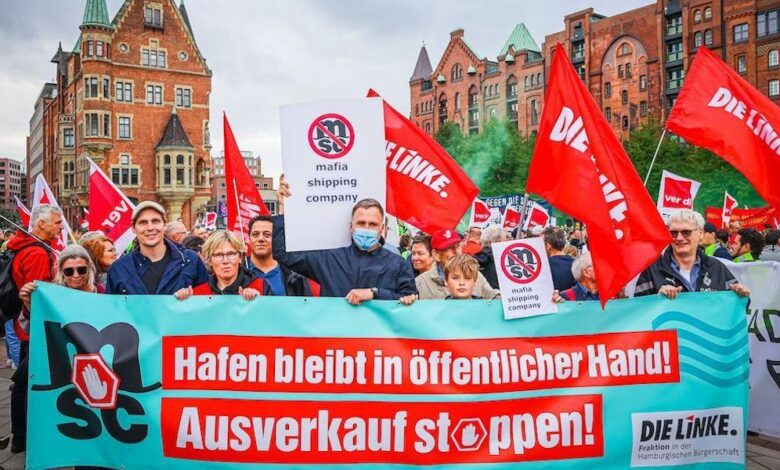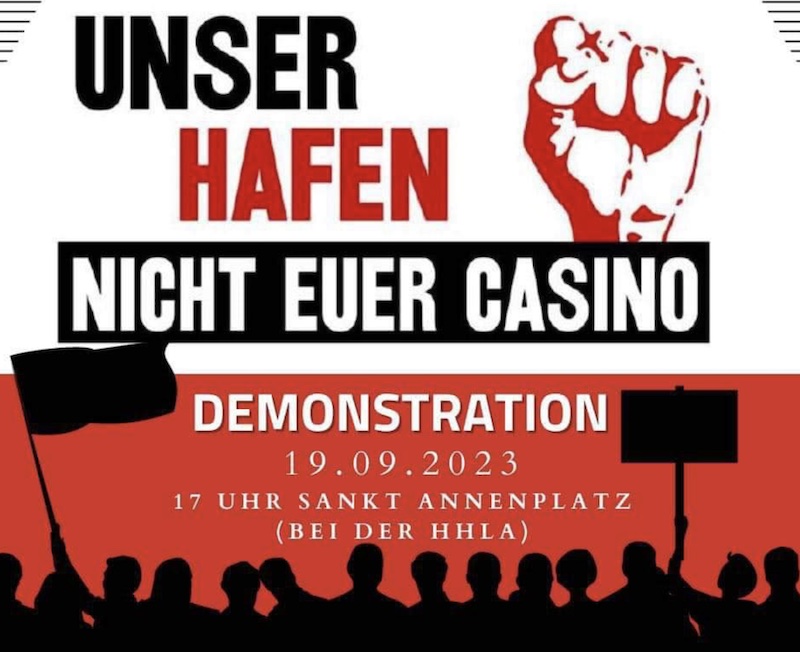2,500 people take to the streets of Hamburg to protest MSC’s port plans

As many as 2,500 people took to the streets in Hamburg yesterday evening in a protest organised by a local union against the 49.9% sale of the city’s top port operator, Hamburger Hafen und Logistik (HHLA), to Swiss-based Mediterranean Shipping Co (MSC).

Flares were thrown and there was a strong police presence as the demonstration made its way from HHLA’s headquarters in HafenCity to the town hall, with protestors chanting: “Our port – not your casino!”
MSC is making a tender offer looking to run HHLA as a joint venture with the city-state of Hamburg, with the line committing to make the north German port city a “central hub” for MSC’s global network of container services. This would see a new office, a doubling of local staff, an extra 1m teu in MSC traffic and the shifting of the company’s German cruise headquarters to Hamburg.
MSC’s arrival has also stirred strong criticism from some of the city’s top tycoons including Klaus-Michael Kühne, the 86-year-old who controls Kuehne + Nagel as well as holding a 30% stake in Hamburg’s top line, Hapag-Lloyd.
As a result of MSC’s bid, Hapag-Lloyd has warned it could reduce its transport to Central Europe through Hamburg to about 70 or 80% of current volumes.
Tuesday’s explosive demonstration came on the same day that a 453 kg British-designed bomb from the Second World War was discovered during dredging work in the port. The Hamburg fire department said in a post on X that it was defused on the spot late last evening.
